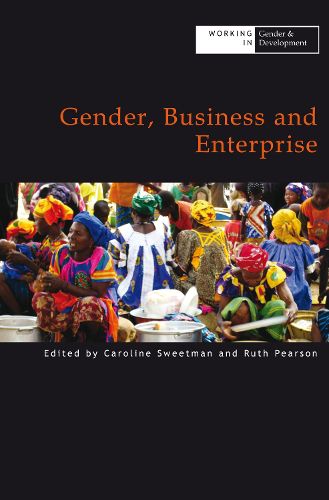Readings Newsletter
Become a Readings Member to make your shopping experience even easier.
Sign in or sign up for free!
You’re not far away from qualifying for FREE standard shipping within Australia
You’ve qualified for FREE standard shipping within Australia
The cart is loading…






This title is printed to order. This book may have been self-published. If so, we cannot guarantee the quality of the content. In the main most books will have gone through the editing process however some may not. We therefore suggest that you be aware of this before ordering this book. If in doubt check either the author or publisher’s details as we are unable to accept any returns unless they are faulty. Please contact us if you have any questions.
Business and enterprise should support gender justice and women’s rights, but the reality is most women worldwide barely earn enough for survival. Why are women producers more likely than men to live hand-to-mouth, trapped in the least profitable and powerful parts of the economy? And what strategies - by development organisations, the business sector, governments and women’s movements - can help change this? Contributions from feminist activists, development researchers and workers here focus on collective forms of enterprise to maximise co-operation between poor women entrepreneurs, women workers’ rights and corporate accountability, gender and Fair Trade, and women’s economic empowerment.
$9.00 standard shipping within Australia
FREE standard shipping within Australia for orders over $100.00
Express & International shipping calculated at checkout
This title is printed to order. This book may have been self-published. If so, we cannot guarantee the quality of the content. In the main most books will have gone through the editing process however some may not. We therefore suggest that you be aware of this before ordering this book. If in doubt check either the author or publisher’s details as we are unable to accept any returns unless they are faulty. Please contact us if you have any questions.
Business and enterprise should support gender justice and women’s rights, but the reality is most women worldwide barely earn enough for survival. Why are women producers more likely than men to live hand-to-mouth, trapped in the least profitable and powerful parts of the economy? And what strategies - by development organisations, the business sector, governments and women’s movements - can help change this? Contributions from feminist activists, development researchers and workers here focus on collective forms of enterprise to maximise co-operation between poor women entrepreneurs, women workers’ rights and corporate accountability, gender and Fair Trade, and women’s economic empowerment.